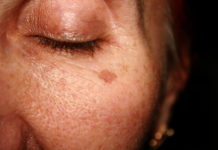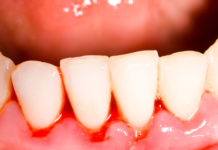You’ve been told this since you were young: you need to make sure you have your daily dose of vitamins to be healthy. Vitamin D is one of the most important vitamins your body needs. In fact, it is necessary for the proper development of your bones and muscles and plays a major role in strengthening your immune system.
1. Where can I find vitamin D?

Vitamin D, which is often referred to as sun vitamin because it is produced by the skin after exposure to the sun, is found in many foods.
You can get your dose of vitamin D by eating fatty fish, liver, dairy products and egg yolk. You can also take vitamin D supplements to make sure there is enough vitamin D in your body.
Unfortunately, people with low exposure to the sun, strict vegetarians and people allergic to food sources rich in vitamin D are at risk of vitamin D deficiency. However, these are not the only causes of vitamin D deficiency.
2. Other causes of vitamin D deficiency

As mentioned above, your body produces vitamin D when your skin is exposed to the sun’s rays. Be aware, however, that your skin can prevent the process that causes vitamin D to be produced.
Some studies have shown that people with dark skin have more difficulty producing vitamin D. In addition, sunscreens can reduce vitamin D production (but this is no reason not to protect your skin with sunscreen!).
Some health problems can also lead to vitamin D deficiency, including cystic fibrosis, kidney disease and Crohn’s disease.
Once the vitamin is produced in the body, it must be absorbed into the bloodstream and delivered to different parts of the body. However, if you have any of these health problems, you may have difficulty absorbing vitamin D.
3. Diagnosis and symptoms of vitamin D deficiency

If you think you have a vitamin D deficiency, you can do a simple blood test. If the test shows a low level of vitamin D in your blood, your doctor may prescribe an x-ray to check the strength and density of your bones. Certainly, before this diagnosis, your doctor may look at these symptoms:
- Chronic fatigue and depression caused by a lack of adequate serotonin.
- Painful and brittle bones and teeth.
- Muscle pain and weakness.
- Weak immune system.
4. What are the health risks of vitamin D deficiency?

Vitamin D deficiency can lead to health risks:
1. Obesity and diabetes. Some studies have shown that people who take vitamin D supplements have been able to lose more weight than those with vitamin D deficiency.
2. Cardiac disease. Another study found that people who took vitamin D supplements daily reduced their risk of heart disease.
3. Cancer. Studies have shown that people with vitamin D deficiency are at higher risk of developing cancers, such as prostate, breast and colon cancer.
5. Here’s how to make sure you have a good level of vitamin D

Wondering what is the best way to avoid vitamin D deficiency? The easiest way is to get your vitamin D from natural sources (adequate sunlight and eating foods containing vitamin D). If you are unable to get a good level of vitamin D, your doctor may prescribe supplements.


![[Photos] Why WD-40 Is Magic In Your Garden?](https://lifetonik.com/wp-content/uploads/sites/7/2019/08/WD40-Prices-Highres_Page_8_Image_0008-218x150.jpg)





![[Photos] Take A Look Of The Obama’s New Home Before It’s Banned](https://lifetonik.com/wp-content/uploads/sites/7/2019/07/Obama1-218x150.jpg)

![[Slideshow] Celebrity Homes: 21 Of The Most Luxurious](https://lifetonik.com/wp-content/uploads/sites/7/2019/07/Taylor-Swift-218x150.jpg)
![[Slideshow] More Parents Are Now Gluing Pennies to the Bottom of their Kid’s Shoes](https://lifetonik.com/wp-content/uploads/sites/7/2019/07/Keep-Them-Entertained-218x150.jpeg)
![[Photos] 20 Fashion Mistakes That Too Many Women Make!](https://lifetonik.com/wp-content/uploads/sites/7/2019/07/5-style-mistakes-that-make-you-look-frumpy-featured-218x150.jpg)



















![[Gallery] 25 Discounts For Seniors To Which You Are Entitled Without Knowing It](https://lifetonik.com/wp-content/uploads/sites/7/2019/08/EAZxECUXUAAvNZR-218x150.jpg)
![[Slideshow] Here’s the salary of every governor in the United States](https://lifetonik.com/wp-content/uploads/sites/7/2019/08/Charlie-Baker-218x150.jpg)
![[Photos] No One Will Want To Buy This House After Seeing These Pictures](https://lifetonik.com/wp-content/uploads/sites/7/2019/08/terrible-real-estate-photos-2-5c35e727c9f95__700-218x150.jpg)



